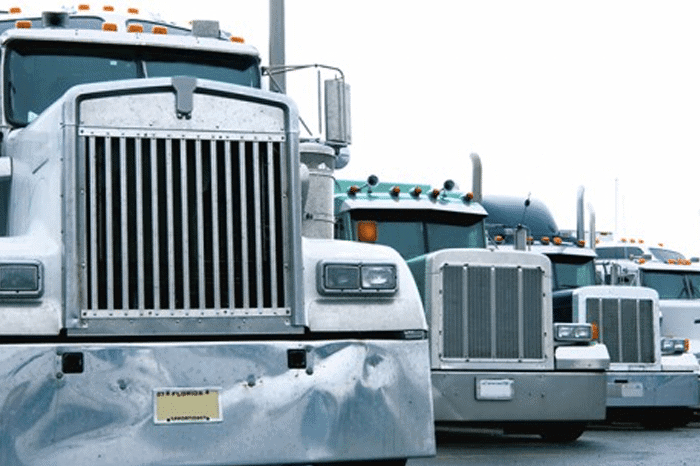6 Reasons running a private truck fleet can be risky business

Running your own private fleet of trucks and drivers is like running your own trucking company. You have the control and flexibility you need to deliver your products to your customers, but it comes with some risk. Here are 6 risks to consider:
1. Risk of losing customers from the increasing driver shortage. Based on data collected by Statistics Canada and The Conference Board of Canada, it has been forecasted that by 2020, the gap between the supply and demand of drivers could be over 33,000 vacancies. Not only are current drivers getting older, there is a real shortage of qualified and skilled drivers entering the market. Because of this, there is a possibility of losing customers due to missed deliveries from trucks sitting idle.
2. Risk of equipment underutilization. Many companies experience shipping peaks and valleys throughout the year. Because of this, private fleets often scale their equipment needs to handle peak periods and satisfy customer demands, which can lead to underutilized equipment sitting idle during slower periods. This practice is inefficient and extremely costly for companies.
3. Risk of penalties caused by safety and compliance driver infractions. The ever-changing regulatory demands of the trucking industry require a great deal of investment and energy. Not to mention steep consequences and penalties when there are safety and compliance infractions such as fines, out of service orders, regulatory scores, or worse…jail time, or fatalities due to driver error or equipment malfunctions.
4. Risk of capital being diverted to trucks, and not company growth. Most businesses have restraints on their available capital. Diverting this limited capital from growth and expansion to purchase trucks for a private fleet is only advisable if the private fleet generates more savings than the potential returns that could be gained if the capital went to new production equipment, upgraded facilities, or technology. Capital should be invested where a company can create the highest return for investors.
5. Risk of management’s attention being sidetracked from strategic business matters. Senior management may be distracted from important business matters when running a private fleet. Staff and costs often expand to keep pace with requirements for driver recruiting and retention, safety training, reporting, permits, accident investigations, insurance, etc. These distractions will further increase as transportation regulations grow in complexity.
6. Risk of liability when a company runs its own trucks. Companies often underestimate the enormous exposure of running a fleet of trucks on busy streets. According to a 2006 study by the U.S. Federal Motor Carrier Safety Administration, the cost to a company for a non-fatal injury crash averaged $195,258, and the average cost of a fatal crash was $3,604,518.
“Businesses must face the fact that one major accident could spell financial ruin…” says Clifford Lynch in Why Shippers Can’t Afford NOT to Convert Their Private Fleets.
There are pros and cons to running a private fleet but understanding your company’s potential risks will help you assess whether private fleet management makes strategic sense for your company. Contact us at [email protected] for your free, no-obligation consultation and see if we can help take your business to the next level.




